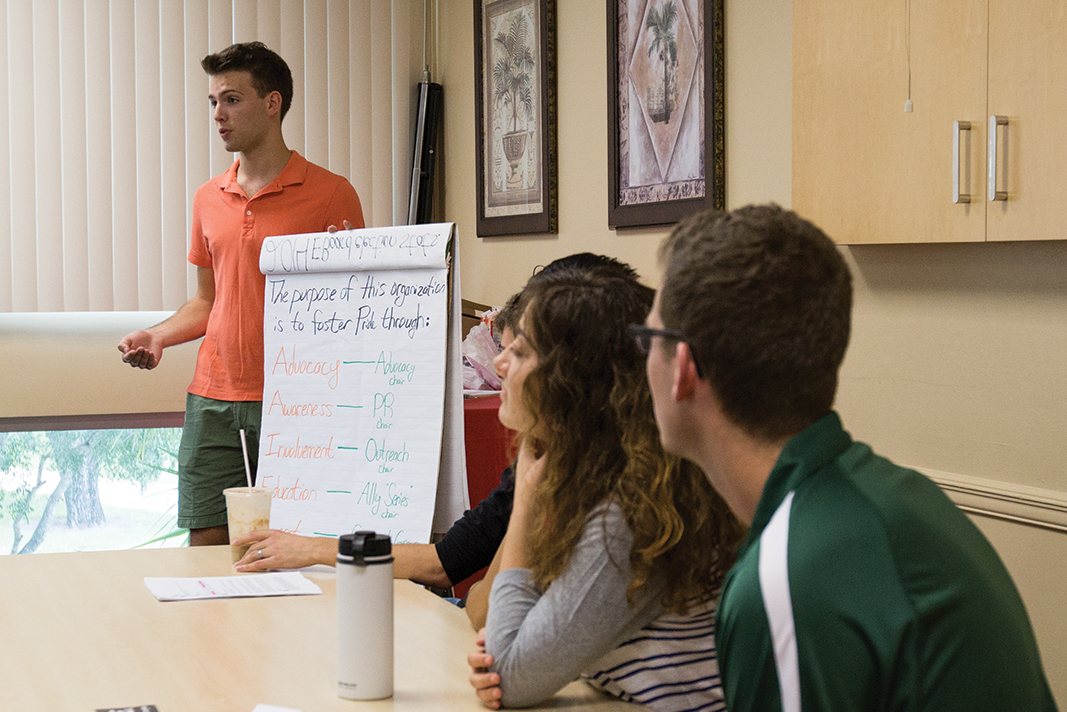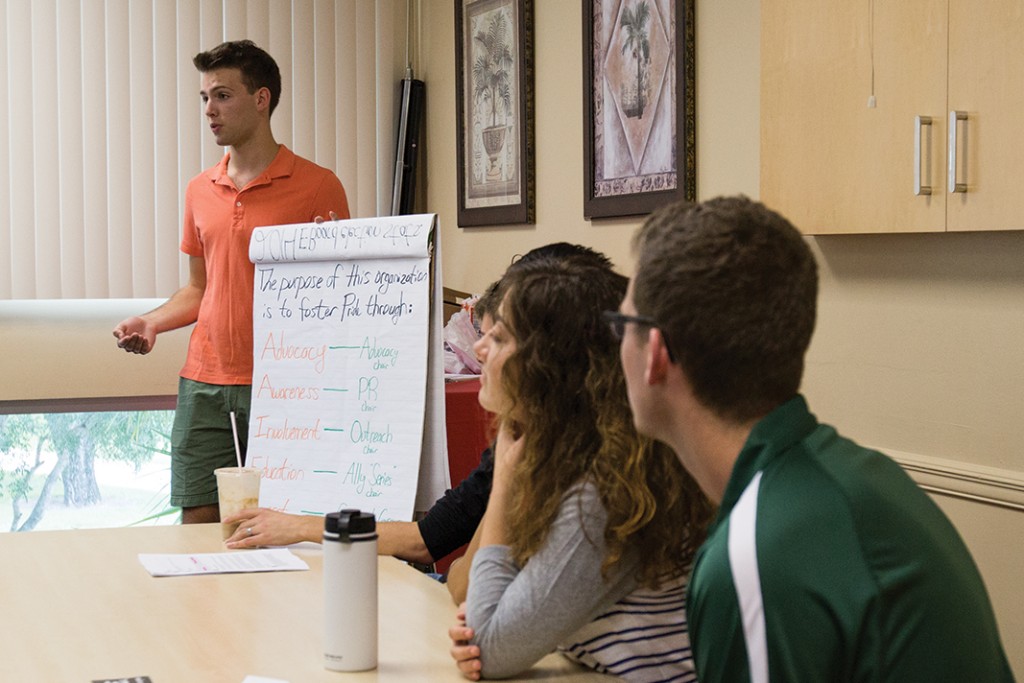

After almost a decade, UM’s LGBTQ student organization, formerly known as SpectrUM, changed its name to UPride. This decision was met with mixed response from some of the club’s members and alumni, prompting the club’s executive board (e-board) to organize a town hall meeting Sunday afternoon.
UPride was founded in 1992 under the name GLBC (Gay, Lesbian and Bisexual Club), making this the second rebranding action the club has undergone. UPride President Jacob Rudolph announced the name change in a memorandum sent to the UM community in early August.
This memorandum ignited the controversy that led to Sunday’s meeting. Although current members and alumni were able to express their differing opinions, the e-board ultimately decided to keep the name UPride.
“It is time to live our lives in the light,” said Fiona Collins, UPride Secretary, prior to the town hall meeting. “While we will still act as an important resource for those who are not able or ready to be out, it is also important for us to move into the 21st century and embrace the great wave of change and support that has characterized the LGBT movement in recent years.”
Much of the dissatisfaction came from the way the e-board chose the name and what the name represents. At the meeting, the club’s e-board acknowledged the fault in their decision-making process, which Rudolph described as “authority without discussion.”
Some of the people who attended the meeting wished to remain anonymous, as part of the club’s mission is to provide a safe space for its members.
Alumna Christina Robinson, who attended the discussion, publicly shared her concerns before the meeting. She argued against the name change because she believes that changing the organization’s name would “alienate those past members who felt personally connected to the name SpectrUM.”
Robinson also said that the rebranding of the club would isolate a large group of students that are not at ease with the idea of pride or “prospective members who are not yet comfortable being ‘out’,” as was her case when she first came to UM.
Fellow alumnus Daniel Nyson was also dissatisfied with the decision.
“In short, the allegedly unanimous E-board decision to change the name without the consultation of the entire group, serves as an example of mass political corruption, ostracizing many of SpectrUM’s own members, and serves as a great disservice to the UM LGBT community at large, taking us backwards into conformity instead of forwards toward individuality,” he said prior to the meeting.
The club’s former vice president Tori MacDonell addressed another problem with the name change – it excludes members of the LGBTQ community.
“Pride events have historically, as well as recently, excluded the transgender and asexual communities, among others,” MacDonell said, after the meeting. “The statement that the board appears to be making is that these groups don’t matter to them. We are minorities within this minority group and we are not being acknowledged even as we are speaking out now.”
Others felt the name change didn’t impact the club’s mission.
“Names don’t define people, people define names,” Collins said, during the meeting.
UPride is open to revisiting this issue again in the future. Rudolph acknowledged that “compromise is feasible.”






